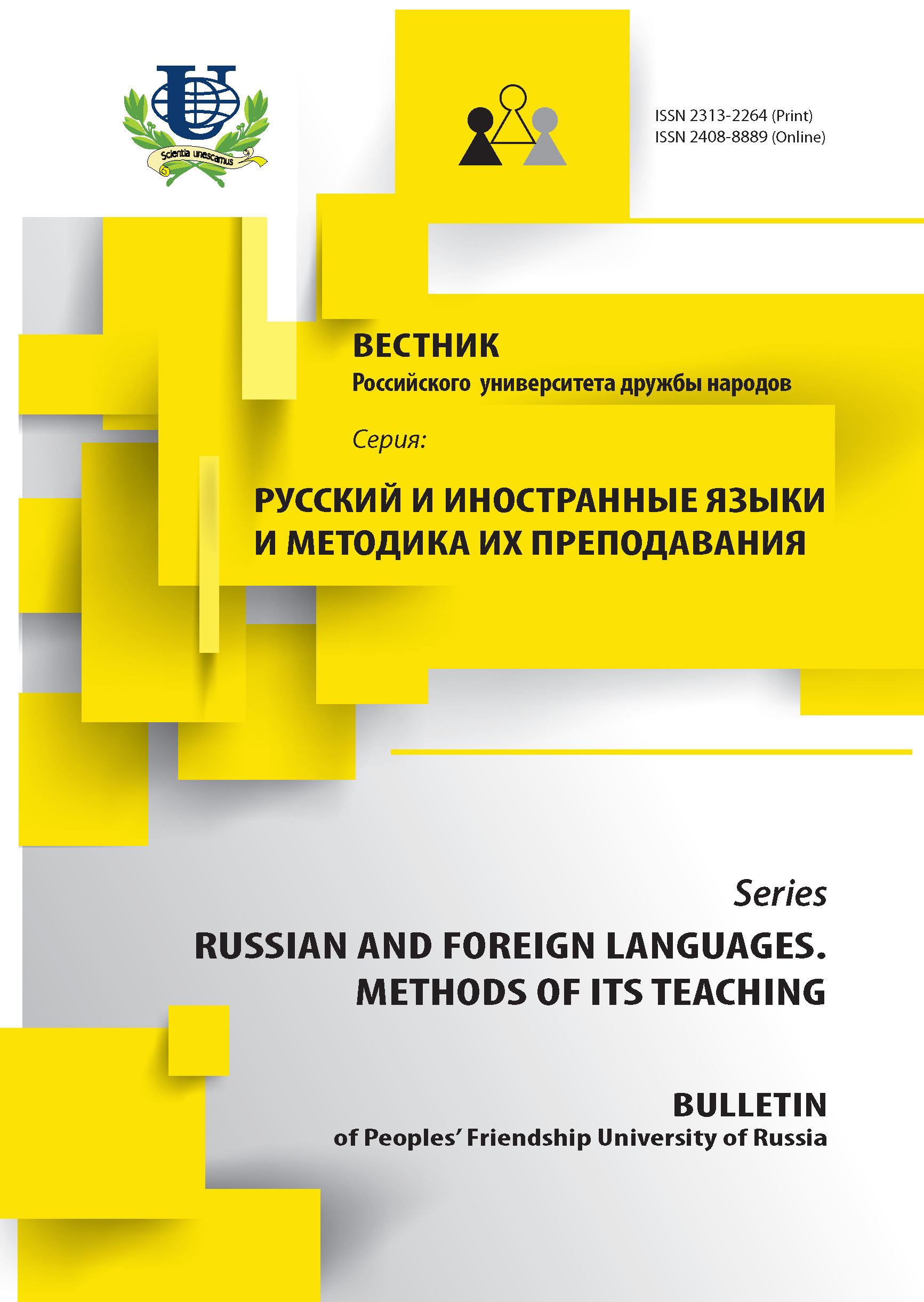SENTENCES WITH PHRASEOLOGIZED STRUCTURE AS LINGUISTIC AND COMMUNICATIVE PHENOMENON
- Authors: Velichko AV1
-
Affiliations:
- FGBOU VPO Lomonosov Moscow State University
- Issue: No 4 (2015)
- Pages: 7-15
- Section: Articles
- URL: https://journals.rudn.ru/russian-language-studies/article/view/13508
- ID: 13508
Cite item
Full Text
Abstract
Syntactic phraseological units in the Russian language are represented widely and variously, but, unfortunately, are not enough researched.The article is devoted to one type of syntactic idioms - sentences with phraseologized structure (PhS), such as: Тоже мне город! ; Ох уж эти мне экзамены! ; Ай да помощник! ; Как не пойти! ; Нет бы мне позвонить ей! ; Хоть меняй квартиру! etc.PhS combines phraseological and syntactic features. It includes two type of components - permanent and variable. Permanent components form the model of the structure and its meaning. Variable components are lexically free, so one model can produce many concrete sentences with different meanings: Тоже мне праздник! ; Тоже мне концерт! ; Тоже мне зима! So, PhS, on the one hand, reproduces, on the other hand, produces.PhS are directly aimed at the communication and disclosed as a specific communicative units. They perform phatic function in the process of communicating: they convey the attitude of the speaker towards the content of the message, express speaker’s intellectual and emotional reaction: assessment, consent, denial, uniqueness, multiplicity, accent etc. and so contribute to a deeper, full communication.Sentences with phraseologized structure are interested as anthropocentric units - they express the inner world of a man, his self-knowledge , thoughts, emotions and relationships.
References
Supplementary files














